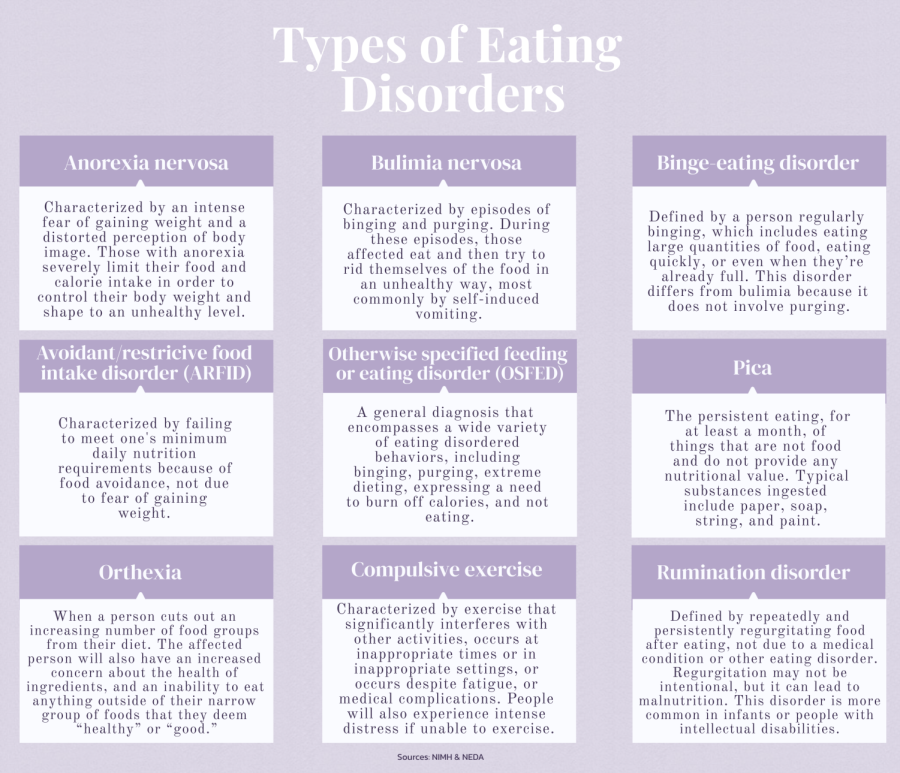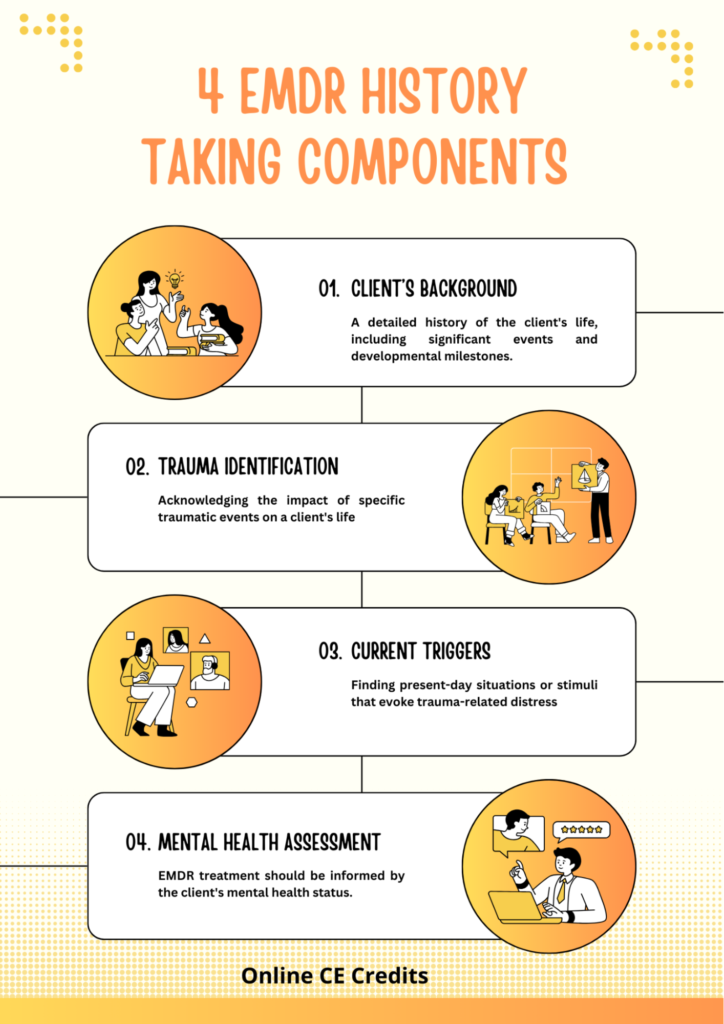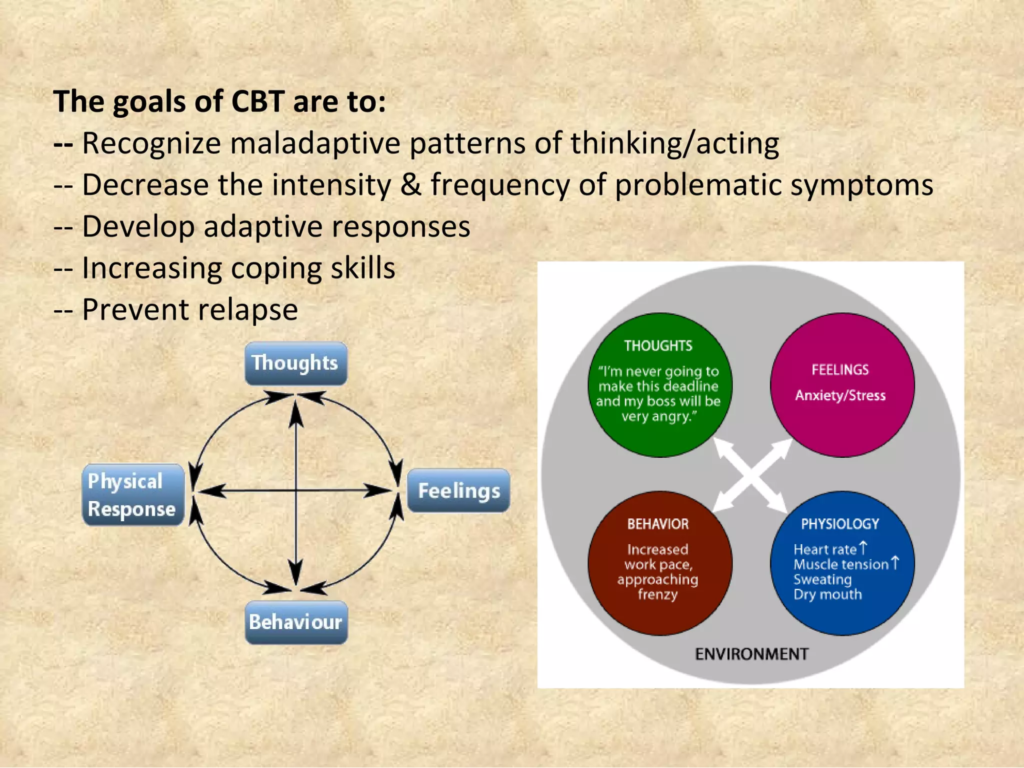loading...

by Sadaqut | Sep 3, 2024 | Certificate
Emotional eating presents a significant challenge for many individuals, deeply affecting their ability to manage their weight effectively. Traditional weight loss programs often emphasize diet and exercise, yet many overlook the emotional and psychological factors driving unhealthy eating habits. Eye Movement Desensitization and Reprocessing (EMDR) therapy offers a unique and promising approach to addressing these underlying emotional triggers, thereby supporting sustainable weight loss.
Understanding Emotional Eating
Emotional eating occurs when individuals use food as a coping mechanism for handling emotional distress rather than addressing hunger. Common triggers include stress, sadness, anger, and even positive emotions. This habit can lead to the consumption of high-calorie comfort foods, which may provide temporary relief but often result in feelings of guilt and further emotional distress. This cycle is difficult to break and can undermine efforts at weight management.
The roots of emotional eating are often embedded in past experiences and unresolved emotional issues. For some, these issues may stem from childhood traumas, such as neglect or bullying, while others may have developed a negative body image or experienced the harmful effects of restrictive dieting. Over time, food becomes a source of comfort, security, or even self-punishment. Addressing these underlying emotional drivers is crucial for changing eating behaviors and achieving lasting weight loss.
How EMDR Can Help
EMDR is a psychotherapy technique originally developed to treat trauma, particularly post-traumatic stress disorder (PTSD). It involves recalling distressing memories while simultaneously engaging in bilateral stimulation, typically through guided eye movements. This process helps the brain reprocess traumatic memories, reducing their emotional intensity and enabling individuals to move past them.
In the context of emotional eating, EMDR can be used to identify and reprocess the traumatic or distressing experiences that contribute to an unhealthy relationship with food. It’s possible to alter eating habits and emotional responses by addressing these root causes.
Here are examples of eating disorders in more detail:

Image Source
Building Healthy Habits Through EMDR
In addition to addressing the root causes of emotional eating, EMDR can support the development of healthier eating habits. Many individuals hold negative beliefs or memories related to food that can sabotage their efforts to make positive changes. For instance, someone who associates dieting with feelings of deprivation or failure may find it challenging to stick to a healthy eating plan.
EMDR can help reframe these negative associations, making it easier for individuals to adopt and maintain new habits. With EMDR, healthier choices become more accessible and sustainable by reducing the emotional intensity of food-related memories.
EMDR and Long-Term Success
Maintaining weight loss is often more difficult than achieving it initially, especially when emotional eating is involved. Without addressing the emotional roots, the risk of regaining weight is high. EMDR provides long-term benefits by helping individuals reprocess the underlying issues that drive emotional eating, equipping them with the tools necessary to sustain their progress.
People can support their weight loss goals in the long run by reducing the power of unresolved emotions.
Outperform Your Peers in Emotional Eating Treatment With Bargain Programs
We’ve all felt the regret of wishing we knew something sooner. Don’t let that happen with your professional development. Our continuing education courses can help you achieve your career goals faster than you ever thought possible. Invest in your future as a competent therapist by enrolling in the accredited courses below:
Practical Considerations for Therapists
Therapists interested in incorporating EMDR into their work with clients struggling with emotional eating should approach the issue with sensitivity and care. Emotional eating is often linked to deeply personal and painful experiences, and clients may need time to build trust before they are ready to explore these issues.
It can be beneficial to begin by educating clients about the connection between trauma and emotional eating and how EMDR can help. Encouraging clients to identify specific memories or experiences that trigger their eating behaviors can provide a starting point for EMDR therapy.
As with any therapeutic approach, it is essential to tailor EMDR to the individual needs of each client. Some may benefit from focusing on past traumas, while others may need to address current stressors or future anxieties. By adopting a personalized approach, therapists can help clients achieve lasting changes in their relationship with food and overall well-being.
Beat Emotional Eating With EMDR Therapy
EMDR offers a powerful tool for addressing the emotional roots of unhealthy eating behaviors, supporting individuals in their journey toward sustainable weight loss. EMDR can help clients break the cycle of using food as a coping mechanism by assisting them in reprocessing traumatic or distressing experiences that fuel emotional eating.
As clients’ emotional responses improve, they are better able to adopt and maintain positive eating habits. This results in long-term weight-loss success.
For those struggling with emotional eating, EMDR may provide the missing piece in their weight loss journey. This provides a pathway to both physical and emotional well-being. Begin your learning experience today.
by Sadaqut | Sep 3, 2024 | Certificate
Crafting effective EMDR (Eye Movement Desensitization and Reprocessing) questions is a skill that can significantly enhance the therapeutic process. It can lead to deeper emotional processing and healing for clients. While the EMDR protocol provides a structured approach, the flexibility within this framework allows therapists to tailor their questions that resonate with each client’s unique experiences. Understanding the art of asking the right questions can make a profound difference in the success of the therapy.
Also, completing an accredited course in EMDR for professional development enables you to identify what triggers a patient’s emotions and where they come from. From there, you can help the person identify and process their emotions positively.
The Art of Tapping into the Client’s Narrative
At the heart of EMDR therapy is the client’s narrative—their personal story that is often intertwined with traumatic experiences. The way a therapist engages with this narrative can either open doors to new understanding or inadvertently close them. The initial phase of EMDR, known as History-Taking, is crucial for building rapport and understanding the client’s experiences. Here, therapists gather information about the client’s past, present, and desired future.
4 EMDR History-Taking Components (Infographic)

However, this phase goes beyond simple data collection. It’s about listening deeply to the way clients describe their memories, emotions, and beliefs.
For instance, when a client speaks about a traumatic event, it’s important to pay attention not just to the content but to the language they use. Are they using certain words repeatedly? Do they seem stuck on specific details? This language provides clues about where they might be emotionally or cognitively “stuck.” A therapist might then ask, “When you think of that moment, what image or thought stands out the most for you right now?” This type of question helps to hone in on the aspects of the memory that are most charged with emotion, setting the stage for effective EMDR processing.
Balancing Structure With Flexibility
EMDR is often lauded for its structured approach, but within this structure, there’s a need for flexibility, especially when it comes to questioning. The Standard Protocol provides a series of steps and questions to follow, but each client’s journey through these steps is unique. This is where the therapist’s skill in crafting questions becomes particularly valuable.
For example, during the Assessment Phase, clients are asked to identify a negative cognition associated with a traumatic memory. The standard question might be, “What negative belief do you have about yourself when you think of that event?” While this is a good starting point, some clients may struggle to articulate clear negative cognition. In such cases, rather than pushing for an answer, a therapist might say, “If it’s hard to find the right words, can you share what feelings come up when you think about that event?” This invites the client to explore their internal experience without the pressure of finding the “right” answer, which can then naturally lead to identifying the underlying negative cognition.
Pacing and Timing: Knowing When To Ask
In EMDR, timing is everything. A question asked too soon can overwhelm a client, while a question asked too late might miss the emotional peak necessary for effective processing. This is particularly true during the Desensitization Phase, where clients process the traumatic memory through bilateral stimulation (e.g., eye movements).
Here, therapists must be attuned to the client’s responses—both verbal and non-verbal. If a client appears to be struggling with intense emotions, it might be tempting to jump in with a question to clarify or redirect. However, sometimes the best intervention is silence, giving the client space to process internally. When it does feel appropriate to ask a question, it should be one that helps the client stay with their experience without leading them away from it. A simple, “What do you notice now?” can be enough to keep the process moving forward without overwhelming the client.
Navigating Cognitive Interweaves: Gentle Nudging Towards Resolution
Cognitive interweaves are an advanced EMDR technique used when a client becomes stuck during processing. These are strategic interventions where the therapist introduces a piece of information or a perspective to help the client move past a block. The key to effective cognitive interweaves lies in how the therapist frames their questions or statements.
For example, if a client is stuck in a loop of self-blame, a cognitive interweave might involve gently challenging this belief. Instead of directly confronting the belief with a statement like, “It wasn’t your fault,” which might trigger resistance, a therapist might ask, “If someone else had experienced this, would you hold them responsible in the same way?” This type of question encourages the client to reflect and reconsider their belief from a different angle, without feeling confronted or judged.
The effectiveness of a cognitive interweave often hinges on the therapist’s ability to introduce new ideas subtly, allowing the client to come to their own conclusions. This requires a delicate balance—being supportive without leading and challenging without confronting.
Ignite Your Trauma Treatment With Core CEU Courses
Learn from experienced clinicians who specialize in trauma assessment, treatment, and prevention. Our online courses offer flexible learning at your own pace, allowing you to access valuable knowledge 24/7. Master techniques like clinically interviewing trauma clients without retraumatization, utilizing sensorimotor therapy for trauma recovery, and addressing personality and dissociative disorders stemming from trauma. Equip yourself to provide compassionate and effective care for clients navigating the complexities of trauma.
Fostering a Collaborative Relationship
EMDR is a collaborative process. The therapist and client work together, each bringing their expertise to the table—the therapist with their knowledge of the EMDR protocol and the client with their intimate understanding of their own experiences. Effective questioning in EMDR respects this collaboration, inviting the client’s input and feedback at every step.
For instance, after processing a memory, a therapist might ask, “How does that feel different now?” rather than assuming a shift has occurred. This open-ended question allows the client to express their experience without feeling pressured to report progress. It also reinforces the collaborative nature of the work, reminding the client that their experience is central to the process.
Additionally, therapists can invite clients to be active participants in setting the agenda for sessions. This might involve asking, “What would you like to focus on today?” at the start of a session, or “Is there something specific you’d like to explore further?” during the session. These questions empower the client, fostering a sense of agency that is crucial for effective therapy.

Reflecting on Progress and Reinforcing Positive Changes
As therapy progresses, it’s important to help clients recognize the changes they are making, both big and small. During the Reevaluation Phase, therapists review previously processed memories to assess the client’s progress and determine next steps. Here, the questions asked can help clients consolidate their gains and reinforce positive changes.
Rather than simply asking, “How do you feel about that memory now?” A more effective approach might be, “When you think about that event now, what’s different for you?” This question not only checks in on the client’s emotional state but also encourages them to reflect on the progress they have made. This reflection is a crucial part of the healing process, as it helps to solidify the new, more adaptive beliefs and feelings that have emerged through EMDR.
Use the Power of the Right Question
The questions asked in EMDR are more than just prompts for discussion—they are tools that guide the client’s journey through their memories, emotions, and beliefs. Crafting the right question at the right time can make the difference between a client feeling stuck or experiencing a breakthrough. It requires a blend of clinical knowledge, intuition, and a deep understanding of the client’s experience.
As therapists continue to refine their questioning techniques in EMDR, they not only deepen the therapeutic process but also enhance their clients’ ability to heal and grow. The power of EMDR lies in its ability to transform lives, one carefully crafted question at a time. Expand your expertise in trauma therapy with our expert-led CE courses.

by Sadaqut | Sep 3, 2024 | Educational
Insomnia has become an increasingly common issue, with an estimated 33% of adults experiencing short-term issues and 10% dealing with chronic insomnia. While conventional treatments like cognitive-behavioral therapy for insomnia (CBT-I) and medication can be effective, there are times when these approaches may not fully address the underlying issues keeping clients awake. That’s where Eye Movement Desensitization and Reprocessing (EMDR) comes in—a therapeutic method traditionally associated with trauma but now showing promise in treating insomnia.
Want to beat insomnia in your therapy? Consider enrolling in a nationally approved EMDR certification, a therapist-managed program with 28 credits.
Connecting Trauma and Sleep
It’s not uncommon for mental health professionals to encounter clients who struggle with both trauma and sleep disturbances. Trauma can disrupt the nervous system, leading to heightened arousal and an inability to wind down. The connection between trauma and sleep problems is well documented, with many individuals reporting that nightmares, flashbacks, and anxiety keep them from getting the rest they need.
EMDR is known for its ability to process traumatic memories, which often play a role in maintaining insomnia. When clients are stuck in a loop of hyperarousal, their sleep patterns can be significantly disrupted. This constant state of alertness, even during what should be a restful period, is where EMDR can make a significant difference. By targeting the root cause—often traumatic memories or distressing experiences—EMDR can help to alleviate the symptoms of insomnia.

The Mechanism Behind EMDR and Insomnia Relief
At its core, EMDR works by facilitating the brain’s natural healing process. The therapy involves recalling distressing memories while the therapist guides the client through a series of bilateral eye movements or other forms of rhythmic stimulation. This process helps to reprocess these memories, reducing their emotional charge and the physiological responses they trigger.
For clients with insomnia, the memories or stressors keeping them awake might not always be what we traditionally categorize as trauma. It could be a range of experiences, from childhood fears to recent stressors. When these are effectively processed through EMDR, the hyperarousal that fuels insomnia can diminish, leading to better sleep.
Clients often report a noticeable decrease in the anxiety that accompanies bedtime, and some even experience an improvement in sleep quality after just a few sessions. This reduction in anxiety is critical, as it can interrupt the cycle of insomnia and start to establish healthy sleep patterns.
Practical Applications of EMDR for Insomnia
When considering EMDR for insomnia, it’s essential to identify the specific memories or stressors that might be linked to the client’s sleep issues. This requires a thorough intake process, where the therapist not only explores trauma history but also any recent life changes, ongoing stressors, and even childhood experiences that might be contributing to the insomnia.
Here’s how EMDR can be practically applied:
Assessment and Targeting:
Start with a comprehensive assessment to identify the memories or experiences that may be contributing to insomnia. This could include past traumas but also more subtle stressors like persistent worries or unresolved grief. It’s important to understand that these can be current, recent, or long-standing issues.
Customized Protocol:
Once these targets are identified, the therapist can create a customized EMDR protocol tailored specifically to the client’s sleep issues. While EMDR typically follows an eight-phase approach; the key here is to adapt the focus to the specific concerns that are most likely disrupting the client’s sleep.
Sleep Hygiene Integration:
Incorporate sleep hygiene education and practices into the treatment plan. While EMDR addresses the psychological barriers to sleep, practical strategies like establishing a consistent sleep routine, reducing screen time, and creating a calming pre-sleep environment can further enhance the treatment’s effectiveness.
Monitoring Progress:
Regularly assess the client’s sleep patterns and adjust the treatment as needed. Sleep diaries can be a helpful tool, allowing both the therapist and client to track improvements and identify any ongoing challenges.
Addressing Residual Anxiety:
Even after significant progress, some clients may continue to experience residual anxiety about sleep. In such cases, additional EMDR sessions can be beneficial to target any remaining stressors or anxieties that might be hindering full recovery.
Case Example: EMDR in Action
Consider a client named Lisa, who had been dealing with insomnia for over two years. Traditional therapy and medication provided limited relief, but the root cause of her sleeplessness remained unaddressed. During the intake process, Lisa revealed that her sleep issues began following a car accident. Although she had physically recovered, the emotional impact of the event lingered, causing her to wake up multiple times a night, often in a state of panic.
Lisa’s therapist identified the accident as a key target for EMDR. Through the sessions, they reprocessed the memory of the crash, reducing its emotional intensity. As the sessions progressed, Lisa noticed a decrease in her nighttime awakenings. Her pre-sleep anxiety diminished, and within a few weeks, she was able to sleep through the night more consistently.
Lisa’s case illustrates how EMDR can address the unresolved emotions that contribute to insomnia. By processing the traumatic memory, her nervous system was able to return to a more relaxed state, making restful sleep possible again.
Deepen Your Knowledge About Insomnia and Trauma

Enrich your understanding of insomnia and trauma with our expert-led courses. Our affordable programs offer comprehensive training on the latest evidence-based techniques. They empower you to treat clients struggling with these complex issues. Learn from experienced instructors below and gain the skills you need to make a lasting impact.
Beyond Trauma: EMDR’s Broader Application in Insomnia
While EMDR is often associated with treating trauma-related insomnia, its applications extend beyond these cases. Many clients experience insomnia due to anxiety, chronic stress, or grief. In these situations, EMDR can be just as effective. The technique can help clients reprocess and desensitize the stressful thoughts and memories that keep their minds racing at night.
For instance, a client struggling with work-related stress might not categorize their experience as traumatic, yet the persistent worry about job performance can lead to sleepless nights. EMDR can target these worries, reducing their intensity and helping the client establish a more peaceful mindset before bed.
Integrating EMDR With Other Therapeutic Modalities
While EMDR can be highly effective on its own, integrating it with other therapeutic modalities can enhance its benefits. Combining EMDR with cognitive-behavioral strategies, relaxation techniques, or mindfulness practices can provide a well-rounded approach to treating insomnia. This multimodal approach addresses both the psychological and behavioral aspects of sleep disturbances, offering clients a greater chance of long-term success.
Insomnia is a complex issue that often requires more than a one-size-fits-all approach. EMDR offers a unique and effective option for mental health professionals seeking to help their clients achieve better sleep. By addressing the underlying memories and stressors that contribute to sleeplessness, EMDR can break the cycle of insomnia and pave the way for restorative sleep.
For therapists, understanding how to apply EMDR in cases of insomnia opens up new avenues for treatment. It’s a valuable tool that helps clients regain control over their sleep and, ultimately, their quality of life. Enroll today and unlock the power of EMDR.

by Sadaqut | Sep 3, 2024 | Certificate
Couples therapy is a cornerstone of relationship healing, offering a space where partners can work through challenges together. However, when traditional methods seem to stall, introducing Eye Movement Desensitization and Reprocessing (EMDR) into couples therapy can unlock deeper levels of connection and understanding. This approach integrates the trauma-focused technique of EMDR into the relational dynamics of couples, helping partners address current conflicts and the underlying issues often rooted in past experiences.
For these reasons, Online CE Credits’ certification in EMDR covers the latest evidence-based therapies from seasoned practitioners with decades of experience. With this program, you can up your game in couples therapy to promote your clients’ healing.
Understanding EMDR’s Role in Couples Therapy
EMDR is often associated with treating trauma, but its applications extend beyond individual therapy. By focusing on how past traumas influence present behavior, EMDR provides a pathway for couples to explore how their personal histories impact their relationship. For many couples, unresolved trauma is an invisible barrier to intimacy, trust, and effective communication. EMDR helps by bringing these issues to the forefront in a way that feels safe and manageable, allowing both partners to address and process them together.
Imagine a couple where one partner has a history of abandonment. Even in a healthy relationship, this fear may manifest as PTSD, anxiety, distrust, or even sabotage. The partner might react disproportionately to perceived slights, creating tension that seems inexplicable. EMDR can help identify the root of these reactions, enabling the couple to see them not as personal failings but as remnants of past trauma. This understanding alone can transform how they relate to each other.
6 Signs of Couples Trauma (Infographic)

Creating a Safe Space for Healing
One of the most critical aspects of integrating EMDR into couples therapy is creating a safe space where both partners feel supported. This process often begins with individual sessions where each person works through their trauma separately. These sessions stabilize intense emotions and enable couples to approach each other from a place of empathy rather than defensiveness when they come together.
For example, during individual EMDR sessions, one partner might process memories related to childhood neglect. This processing could lead to a better understanding of why they struggle with vulnerability in their current relationship. Once both partners have had the opportunity to explore their histories, they come together in couples sessions, bringing a new level of awareness and readiness to connect.
Fostering Mutual Understanding and Empathy
In couples therapy, EMDR is not just about healing past wounds—it’s also about fostering mutual understanding and empathy. As partners share their experiences, they begin to see each other as the person standing before them and as individuals shaped by their pasts. This perspective shift can soften judgments, making it easier to approach conflicts with compassion.
Let’s consider a situation where one partner has experienced significant trauma that the other doesn’t fully understand. Without EMDR, the non-traumatized partner might struggle to empathize, leading to feelings of isolation and resentment. With EMDR, the process of sharing and understanding these experiences can create a bridge between them. They begin to see each other’s reactions not as random or irrational, but as understandable responses to deep-seated fears and hurts.
Enhancing Communication and Conflict Resolution
EMDR’s impact on communication in couples therapy is profound. Often, past traumas disrupt how individuals express themselves or listen to their partners. They might shut down, become overly defensive, or misinterpret their partner’s intentions. EMDR helps clear these emotional blockages, paving the way for more open and effective communication.
For instance, a partner who has always responded to conflict with anger might, through EMDR, uncover a history of feeling unheard or dismissed as a child. Understanding this link allows them to articulate their feelings more clearly and respond to their partner without the cloud of past pain. The other partner, in turn, can respond with greater empathy, knowing the deeper reasons behind the anger. This mutual understanding can significantly reduce the frequency and intensity of conflicts, allowing the couple to navigate disagreements in a more constructive manner.
Strengthening Emotional Bonds
EMDR doesn’t just help couples manage conflict; it can also deepen their emotional connection. When partners process their traumas together, they often experience a renewed sense of intimacy. They see each other’s vulnerabilities and strengths more clearly, leading to a deeper bond. This emotional intimacy is the bedrock of a strong relationship, providing resilience against future challenges.
Consider a couple who has been distant due to unaddressed trauma. As they go through EMDR together, they start to feel more connected. This is because they’re resolving past issues together. They begin to see their relationship as a safe haven, a place where they can heal and grow as a unit. This shift can turn a struggling relationship into a thriving one.
Advance Your Career in Couples Therapy With Trauma-Focused Courses
Wish you knew about our nationally approved certifications sooner? Our continuing education courses can help you achieve your professional goals faster than you ever thought possible. Enroll in the accredited CE courses below to enhance your trauma therapy for couples.
Real-Life Success Stories
Real-world examples highlight how transformative EMDR can be for couples.
One couple was on the brink of separation due to constant arguments and misunderstandings. However, they discovered through EMDR that they were reacting to unresolved trauma—one from a chaotic childhood and the other from a history of emotional neglect. By working through these issues in individual and joint sessions, they understood each other’s triggers and needs more clearly. This understanding led to fewer arguments and a stronger, more compassionate connection.
Another couple found that EMDR helped them break a cycle of mistrust. One partner’s past infidelity had shattered the trust in their relationship, and despite their best efforts, they couldn’t move past it. Through EMDR, the unfaithful partner processed the guilt and shame that fueled their destructive behavior, while the other partner worked through the betrayal trauma. Over time, they rebuilt trust on a foundation of honesty and mutual understanding, something they hadn’t thought possible before starting EMDR.
Integrating EMDR with Traditional Couples Therapy

EMDR doesn’t replace traditional couples therapy but enhances it. Therapists often blend EMDR with techniques like Emotionally Focused Therapy (EFT) or the Gottman Method, creating a comprehensive approach that addresses both the emotional and cognitive aspects of relationship challenges. By combining these methods, therapists can offer a more tailored experience that meets each couple’s unique needs.
For example, a therapist might use EMDR to help one partner process trauma that’s impacting their ability to engage in EFT’s emotional bonding exercises. Or, they might integrate EMDR with the Gottman Method’s focus on communication and conflict resolution. This ensures past traumas don’t derail the progress being made in therapy. The integration allows for a more personalized and effective therapy experience.
The Future of Relationship Healing
In the hands of a skilled therapist, EMDR couples therapy offers a powerful way to address the deeper issues that often underlie relationship struggles. It provides a pathway for managing conflict and fostering understanding, empathy, and connection. For couples willing to embark on this journey, EMDR can be a transformative experience. It can strengthen their relationship and lay the groundwork for a healthier, happier future together.
As more therapists integrate EMDR into their work with couples, the potential for this approach to revolutionize relationship therapy continues to grow. The benefits of EMDR go beyond helping couples cope with their challenges; they help them thrive. Begin your learning experience today.

by Sadaqut | Aug 27, 2024 | Educational
As a social worker, you’re no stranger to the complexities of human behavior. You’re on the front lines every day, providing support, resources, and guidance to individuals navigating challenges ranging from mental health issues like eating disorders to difficult life transitions. But even with all the tools and skills you’ve acquired, there’s always room to grow and refine your practice.
One way to do that is by deepening your understanding and application of Cognitive Behavioral Therapy (CBT). CBT certification isn’t just a feather in your cap; it’s a powerful way to enhance your effectiveness as a social worker and to make a tangible difference in the lives of those you serve.
Why CBT Certification?
CBT has long been recognized as one of the most effective forms of psychotherapy, especially for treating anxiety, depression, PTSD, and a host of other mental health issues. At its core, CBT is about helping individuals identify and change distorted thought patterns that lead to unhelpful behaviors and emotions. By becoming certified in CBT, you equip yourself with a structured, evidence-based approach that can be adapted to a wide variety of client needs.
For social workers, the value of CBT certification goes beyond the therapy room. It’s about enhancing your problem-solving toolkit and ensuring that you’re providing the most effective interventions. Whether you’re working in schools, hospitals, private practice, or community agencies, the principles of CBT can be applied to nearly every scenario. It offers a practical approach to helping clients develop coping strategies, build resilience, and make lasting changes in their lives.

Image Source
The Real-World Benefits of CBT Certification
Let’s talk about how CBT certification can make a concrete impact on your daily work. Consider a social worker who’s spent years working with at-risk youth. This population often struggles with issues like low self-esteem, substance abuse, and unstable family environments. Traditional support methods can sometimes feel like putting a band-aid on a deeper wound.
However, with CBT, you’re not just addressing the symptoms but getting to the root of the problem by helping young clients challenge negative thinking patterns and replace them with more constructive ones.
Imagine the satisfaction of seeing a client who once felt hopeless about their future start to make positive changes, such as attending school regularly or engaging in healthier relationships, because they’ve learned how to control their negative thoughts. That’s the kind of transformation CBT can facilitate.
Another example is in the realm of family social work. Families in crisis often need more than just resources and referrals; they need someone who can help them break out of destructive cycles of behavior. As a social worker, you can help family members identify dysfunctional communication patterns and replace them with healthier ones by using CBT techniques.
Additionally, it empowers individuals within the family to approach conflicts differently.
Enhancing Your Professional Credibility
In a field where practical experience is highly valued, it’s easy to overlook the importance of continued education. However, the reality is that the mental health landscape is constantly evolving, and what worked a decade ago may not be as effective today. Your CBT certification won’t just keep you current; it’ll position you as an industry leader.
Let’s say you’re a social worker looking to transition into a supervisory or training role. Having CBT certification on your resume can be a significant differentiator. It signals to employers and colleagues that you’re committed to providing the highest standard of care, and that you have a specialized skill set that can be passed on to others in your team.
Moreover, CBT certification is often a requirement or strong recommendation for roles in specialized areas such as mental health counseling, school social work, or trauma-focused care. Even if it’s not explicitly required, having this certification can give you a competitive edge when applying for jobs, negotiating salaries, or seeking promotions.
The Certification Process
Let’s break down what’s involved in getting certified. The process typically begins with completing a certain number of hours of CBT-specific training. This can be done through workshops, online courses, or formal education programs. Many social workers find that online courses are particularly convenient, allowing them to fit training into their busy schedules without compromising their current responsibilities.
After completing the required training, the next step is to put into practice what you’ve learned through supervision. This is where you’ll start to see the real-world application of CBT techniques with your clients. Supervision is a key part of the certification process, as it ensures that you’re using CBT methods correctly and effectively. During this period, you’ll receive feedback and guidance from an experienced CBT practitioner, which is invaluable for honing your skills.
Finally, you’ll need to pass a certification exam. This typically involves a combination of multiple-choice questions and case-based scenarios, designed to test your knowledge and application of CBT principles. While the exam can be challenging, it’s also an opportunity to solidify your understanding of CBT and ensure you’re fully prepared to incorporate it into your practice.
Expand Your CBT Horizon Through Online CEUs
Feeling overwhelmed with licensure requirements? Worry no more. Online CE Credits offers digestible, hassle-free professional development courses 24/7. No due dates. No deadlines. Earn over 20 credits in just 20 days by enrolling in the accredited programs below:
Incorporating CBT into Your Social Work Practice
Once you’re certified, the real work begins—integrating CBT into your daily practice. This might seem daunting at first, especially if you’re already juggling a heavy caseload, but the beauty of CBT is its flexibility. It can be adapted to fit various settings and client needs.
Start by introducing CBT concepts in your initial assessments. For example, when meeting with a new client, consider using a thought record to help them identify and analyze their automatic thoughts. This can give you valuable insights into their cognitive patterns and provide a foundation for your work together.
In group settings, CBT techniques like role-playing or group discussions about common cognitive distortions can be particularly effective. These exercises not only help clients understand their own thought patterns but also foster a sense of community as group members realize they’re not alone in their struggles.
For clients who are dealing with long-term issues, such as chronic depression or anxiety, CBT can be used to break down their problems into more manageable parts. By focusing on small, achievable goals, clients can begin to see progress more quickly, which can be incredibly motivating.

The Impact on Your Clients
One of the most rewarding aspects of becoming CBT-certified is seeing the positive changes in your clients. CBT is often described as a brief, solution-focused therapy, but its effects can be long-lasting. Clients who engage in CBT often report feeling more in control of their thoughts and behaviors, which can lead to significant improvements in their overall quality of life.
For example, a client struggling with anxiety might initially feel overwhelmed by their symptoms, but through CBT, they learn to challenge and change the thoughts that trigger their anxiety. Over time, they may find that their anxiety no longer controls their lives, allowing them to engage in activities they once avoided.
Another client dealing with depression might start to recognize the negative thought patterns that contribute to their low mood. By using CBT techniques, they can begin to reframe these thoughts and develop a more positive outlook, leading to improved mood and increased motivation.
As a social worker, seeing these kinds of changes in your clients is incredibly fulfilling. It’s a reminder of why you chose this career in the first place—to help people make meaningful, lasting changes in their lives. And with CBT certification, you’re better equipped than ever to do just that.
Making the Commitment
Pursuing CBT certification is a significant commitment, both in terms of time and effort. But for social workers dedicated to providing the best possible care for their clients, it’s a commitment worth making. Besides enhancing your professional skill set, it gives you an opportunity to make a deeper impact on those around you.
If you’re ready to take your career to the next level, consider exploring the CBT certification programs available to you. Whether you choose an online course, an intensive workshop, or a formal education program, the knowledge and skills you’ll gain will be invaluable. And most importantly, your clients will reap the benefits of your enhanced expertise, leading to better outcomes and a brighter future for everyone involved. Start your journey now!













